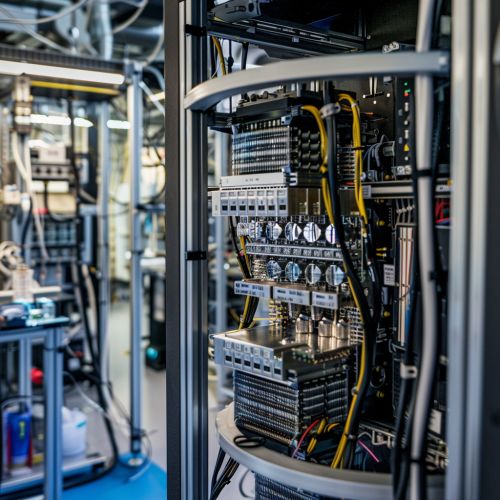Upcoming Fascinating Topics
Introduction
The world of knowledge is vast and ever-expanding, with new discoveries and insights emerging every day. This article explores some of the most fascinating topics that are currently being studied and discussed in various fields of study. These topics are at the cutting edge of their respective disciplines, pushing the boundaries of what we know and understand about the world and the universe. They are not only interesting in their own right, but also have the potential to transform our lives and society in profound ways.
Physics: Quantum Computing
Quantum computing is a new paradigm in computing that utilizes the principles of quantum mechanics to perform computations. Unlike classical computers, which use bits as their basic unit of information, quantum computers use quantum bits, or qubits. A qubit can exist in a superposition of states, allowing it to perform multiple calculations simultaneously. This parallelism, combined with the ability of qubits to be entangled, gives quantum computers the potential to solve certain problems much more efficiently than classical computers. However, building a practical quantum computer is a formidable challenge due to the delicate nature of quantum states and the difficulty of maintaining quantum coherence.


Biology: CRISPR Gene Editing
CRISPR (Clustered Regularly Interspaced Short Palindromic Repeats) is a revolutionary gene-editing technology that allows scientists to modify an organism's DNA with unprecedented precision and efficiency. It works by using a protein called Cas9 to cut DNA at a specific location, allowing scientists to add, remove, or change specific genetic material. This technology has enormous potential in a wide range of applications, from treating genetic diseases to improving crop yields. However, it also raises important ethical and safety concerns, particularly when it comes to editing the human germline.
Artificial Intelligence: Deep Learning
Deep learning is a subfield of artificial intelligence (AI) that focuses on algorithms inspired by the structure and function of the brain called artificial neural networks. These algorithms are designed to automatically learn to recognize complex patterns by being trained on a large amount of data. Deep learning has been used to achieve state-of-the-art results in a wide range of tasks, including image recognition, speech recognition, and natural language processing. However, despite its impressive capabilities, deep learning also has its limitations and challenges, such as the need for large amounts of data and computational resources, and the difficulty of interpreting the internal workings of deep learning models.
Climate Science: Geoengineering
Geoengineering is the deliberate large-scale intervention in the Earth's natural systems to counteract climate change. It includes techniques such as solar radiation management, which aims to reflect a small proportion of the Sun's energy back into space, and carbon dioxide removal, which aims to reduce the levels of carbon dioxide in the atmosphere. While geoengineering could potentially help mitigate the effects of climate change, it also carries significant risks and uncertainties, and raises complex ethical and governance issues.
Conclusion
These are just a few examples of the fascinating topics that are currently being explored in various fields of study. Each of these topics not only expands our understanding of the world and the universe, but also has the potential to bring about significant changes in our lives and society. As we continue to explore these and other topics, we can look forward to a future full of discovery and innovation.
